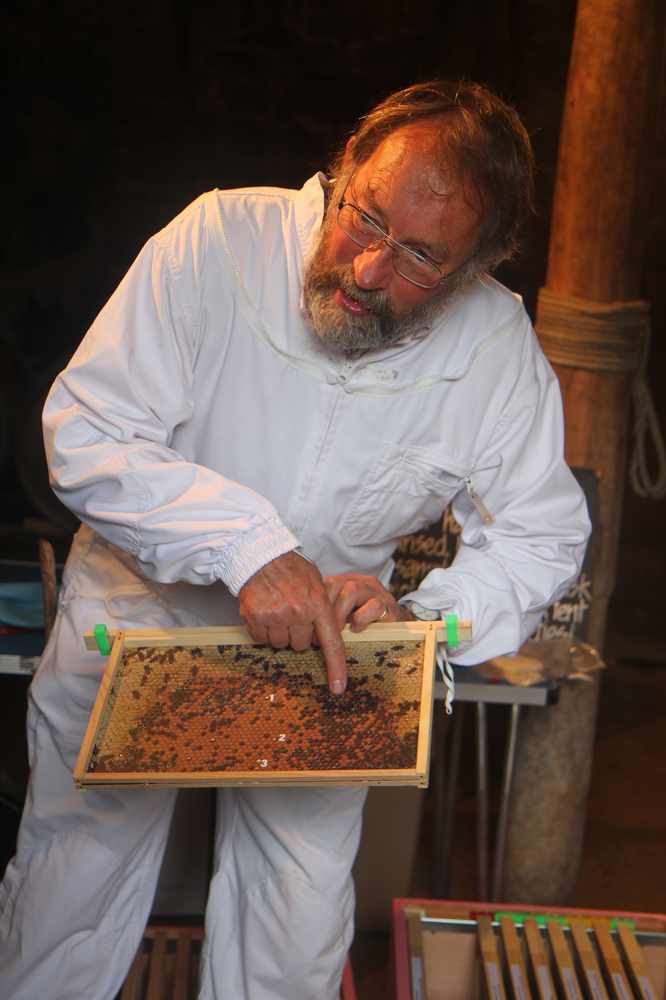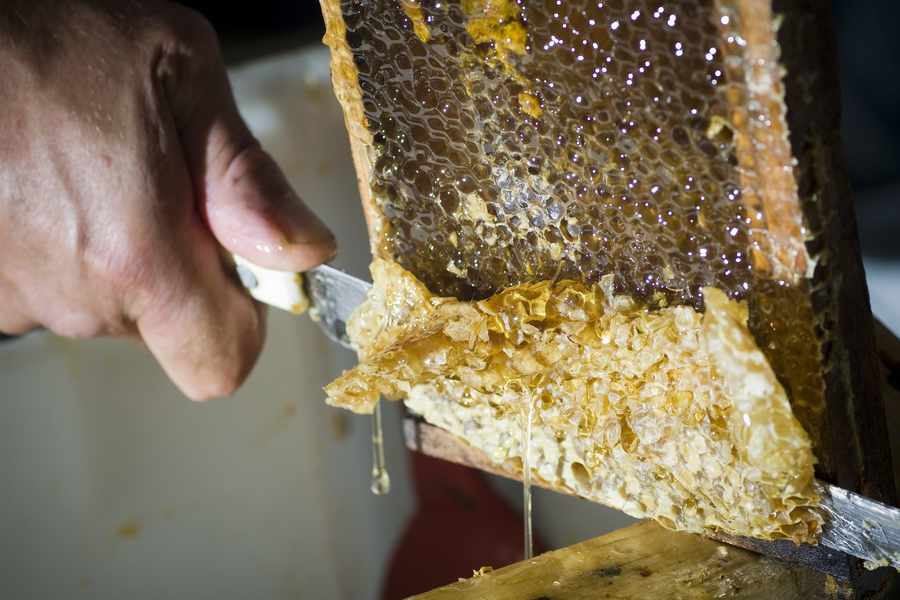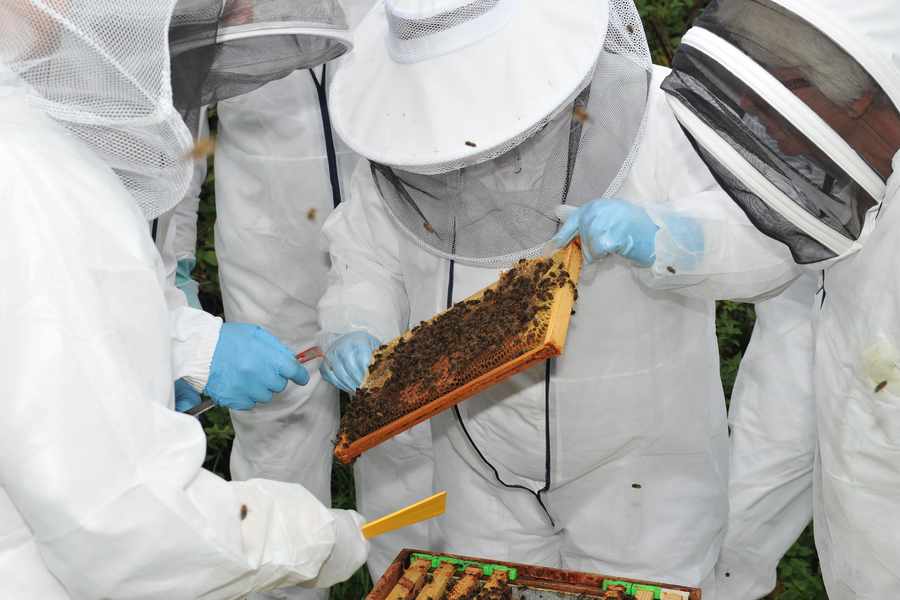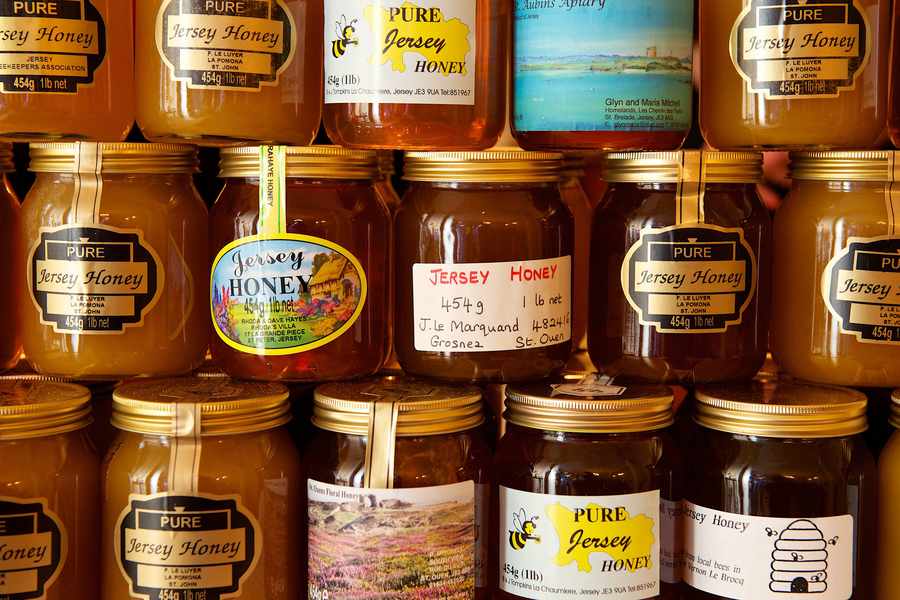Bob Hogge, president of the Jersey Bee Keepers’ Association, has warned that there are still significant challenges ahead but that honey stocks should be able to match the high demand.

After a stabilising 2014, honey production has improved despite the poor weather this year. It follows two years where disease and poor weather caused major problems for the Island’s beekeepers.
However, Mr Hogge said that there have been no reports of American Foulbrood this year, a disease which wiped out several colonies.
Mr Hogge said: ‘It has still been a bit patchy this year because of the weather but we have started to get back to decent numbers.
‘I would not say we are out of the wood just yet but we are improving a lot which is a very positive sign.
‘The number of beekeepers is expanding – we are now up to 100 and growing.
‘We sent ten beekeepers to the UK on a disease recognition course so we now have a better knowledge of what we are looking at and how to manage it.’
He added that there were challenges facing the Island’s beekeepers, particularly in the form of two other insects which threaten bees.
He said: ‘We have two major challenges. One is the Asian Hornet which are in France and we expect them to come here soon. They are predators of the bees.
‘The other is beetle which lives at the bottom of the hive and eats the hive out. Until recently, we had not seen them in Europe but they are now in Italy and could make there way here.’
How do I learn about keeping bees?
The best way to learn about keeping bees is to join the free beginners course that the
Association runs during the winter and spring.
The beginner’s course will outline the life cycle of the bee, the different types of hive and their parts and functions, the diseases and pests which sadly bees are prone to and how to extract and present honey.

What do I need?
The basic kit consists of a veil (or you may feel more secure in a bee smock or suit),
Gloves, a smoker to pacify the bees when you open the hive and a hive tool for separating the frames in the hive so as to inspect the frames. Once you decide to keep bees, then you will need a hive, frames and wax foundation on which the bees make their honey and brood cells and, of course, some bees!
Why should I keep bees?
Beekeeping is a fascinating hobby which not only helps with pollination of fruit in your local area but which may also provide around 30 lbs or more of honey per colony. In addition, you will be able extract beeswax for making candles, soap, polish etc.
Will I get stung?
Yes, but unless you are allergic to the stings, the general experience is that the stings hurt less over time. Beginners are likely to get stung more often than experienced keepers but accidental stings are part and parcel of beekeeping.
How much space do I need?
So long as you site the hives away from your neighbours, then you need very little space for one or two hives. You do not necessarily even need a garden – a hive can be sited on a flat roof and in fact this would avoid bees flying at head height near your neighbours.
How much time will it take?
It depends on the season. During the summer you are likely to need to check each hive at least once a week which will take 20 minutes to half an hour. As you become more experienced that time is likely to reduce.
How do I get some bees?
The $64,000 question! It is always recommended that you try to obtain local bees. In practice, here in Jersey, the only way to get bees is by either hiving a swarm or begging or buying a nucleus (small colony) of bees from an established beekeeper. It is possible to import bees from the UK or EU with the permission of the States Vet but it is complicated and may take anything up to a year.
Why do bees make honey?
Unlike solitary bees such as bumble bees, honey bees over-winter in the hive so need stores of food to keep them going through the cold weather. The bees do not hibernate but rather cluster together to keep warn (around 32 degrees centigrade) which takes a lot of energy and hence food. An average hive needs about 30 pounds of honey to get through the winter but a strong hive in a good year can make two or three times that amount which the bee keeper can then take.

How do they make honey?
Bees visit flowers and suck in the nectar, a sweet sugary substance, and then fly back to the hive. The nectar is mixed with enzymes that the bee produces and once back at the hive, they deposit the nectar in wax cells. The nectar/honey has too much water in it to store without the mixture fermenting so the bees leave it in the cells until much of the water has evaporated. Once the water content has fallen to about 17%, the cells are capped with a thin layer of wax and the honey will then stay preserved almost indefinitely – so much so that edible honey has been found in ancient Egyptian tombs, thousands of years old.
Do the bees miss the honey that is taken?
A strong colony can collect more than enough to see it through the winter in a good summer. A wise bee keeper will leave sufficient honey in the hive for the bees to use
over the winter and can also feed sugar syrup in the late summer and autumn if the bees have not collected enough honey for their needs.







